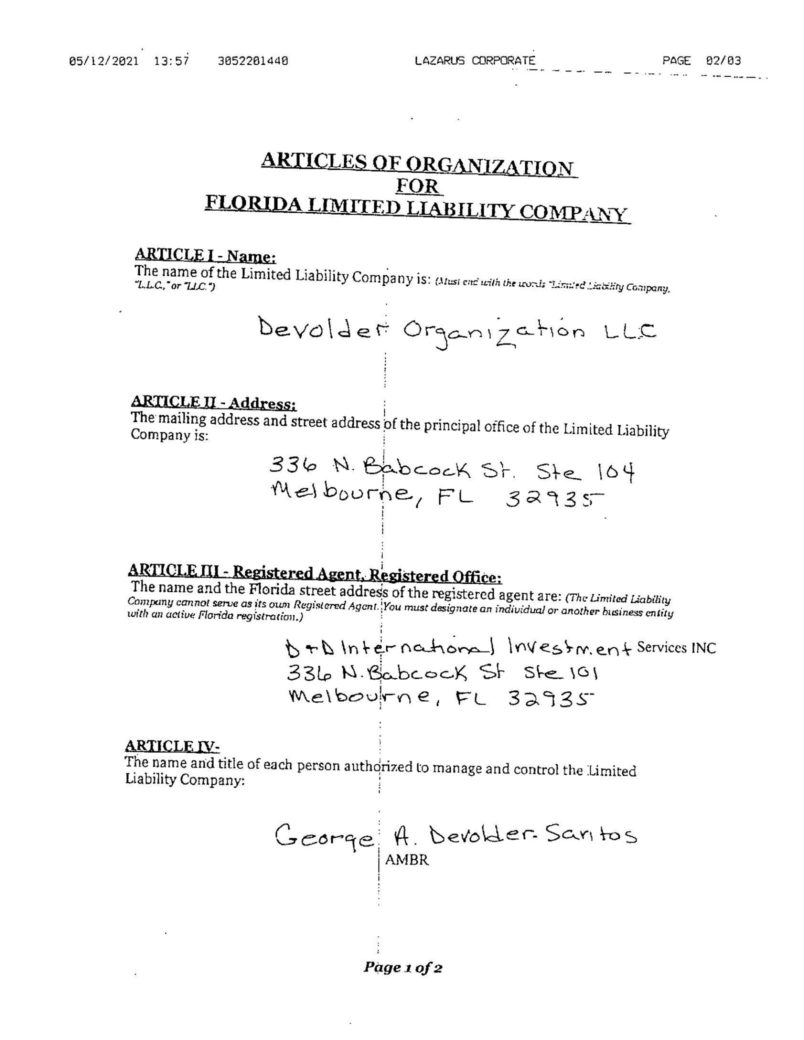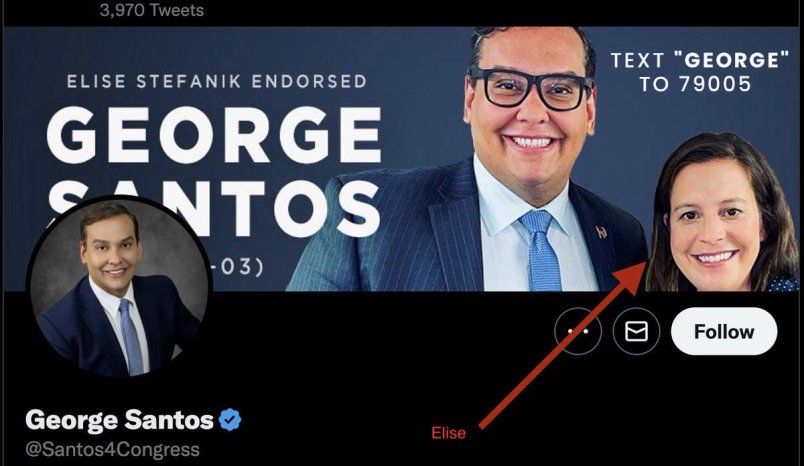I thought I’d take a brief moment to whet your expectations about the story of Mr. George Santos, soon to be Representative George Santos (R-NY), possibly soon to be former Representative George Santos (R-NY). This is mainly just elaborating on points made in the Times piece from yesterday with a few tidbits from my digging last year.
Let’s consider the timeline.
Santos’ biography turns on a purported family real-estate business which owns 13 properties. He made news during the pandemic grousing about how his tenants were taking advantage of eviction holidays. That family real-estate firm appears to the Devolder Organization LLC, maybe, which we’ll come back to in a moment.
In 2015 and 2017, Santos was taken to court in two separate eviction actions over relatively small sums of back rent — about $2,500 in one case and just over $10,000 in another. When he ran for Congress the first time in 2020, he reported $55,000 in income from a company called Linkbridge. During the campaign he seems to have moved on to another company, Harbor City Capitol, which was seized by the SEC for running a ponzi scheme. He was not named as one of the responsible criminal targets in that seizure. But let’s put that to one side. Basically, up through 2020, Santos seems to have operated with fairly modest means and even got into jams over either inability or unwillingness to pay relatively small amounts of rent.
But in May 2021 he incorporated the Devolder Organization LLC in Florida. This is apparently the family real-estate company which he has referred to.

Devolder was dissolved in Florida in September of 2022 over failure to file an annual report. But in his 2022 campaign disclosure, filed in September 2022, Santos reported $750,000 in income from Devolder along with between $1 million and $5 million in dividends. Needless to say this is a pretty big turnaround for a guy who reported $55,000 in income just two years earlier and had not long before been taken to court over less than $3,000 in back rent.
As TPM Reader SB notes, you can stand up these shell companies pretty much to your heart’s content. On these state corporate filings I don’t believe they require disclosure of all beneficial owners. So perhaps Santos just moving things from one shell company to the next. There’s not necessarily anything wrong with that. But it’s not what you would expect from a well-heeled family real-estate company, to put it mildly. I interpreted Devolder as being the family real-estate firm Santos refers to. The Times seemed to think it’s some kind of operation with clients, none of which are detailed on the congressional disclosure. Who knows? They clearly went much deeper on this than I have.
But the rub remains. Given that Santos lied about his educational history, his work history and his outstanding criminal history in Brazil I’m not sure we can take anything on his House financial disclosure for granted. Members usually want to limit the impression of wealth on their disclosures — within the law, one hopes. But maybe he disclosed vast amounts of non-existent income to make himself seem like a player? Who knows?
But here’s the key thing. Santos did loan $700,000 to his 2022 campaign. I don’t think that can be false. Either his campaign had the money or it didn’t. Certainly many members of Congress have $700,000 in assets, often much, much more. But the percentage of the population who has access to $700,000 in cash is quite small. The percentage that can afford to loan that much money with little prospect of getting it back is far smaller still.
That is the nub of this story. Fake resumes are embarrassing. They’re probably not criminal. Money is where things get real. Everything in Santos’ life reads like the story of a low-rent con artist, drifting from gig to gig, with a trail of judgments for back rent, check fraud in Brazil, etc. And yet in his second successive run for Congress he claims to have at least $2 million in annual income, up from $55,000 two years before. He is able to loan his campaign $700,000.
The last number is the key. That has to be real, while almost everything else could be fake. We have on the one hand our story of the low-rent chancer and on the other the candidate who can self-fund his campaign. Somehow the two totally incongruous stories connect. But so far we don’t really have any clue how.






